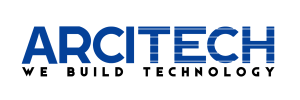Hiring a Full-Stack Developer: Essential Tips You Need to Know
Hiring a full-stack developer can be a game-changer for your tech projects, but finding the right fit requires careful consideration. This comprehensive guide equips you with essential insights to make an informed decision when hiring a full-stack developer. From technical proficiency to team dynamics, discover the crucial aspects to ensure a successful partnership.
Absolutely, let’s delve deeper into each of the main points and sub-points mentioned in the outline.
Understanding the Role of a Full-Stack Developer
Versatility
A full-stack developer is like a Swiss Army knife in the software development world. They have expertise in both front-end and back-end development, which means they can handle everything from creating the user interface that users interact with to managing the server and databases that power the application.
Tech Stack
Full-stack developers work with a wide array of technologies. They may be proficient in programming languages like JavaScript, Python, Ruby, or Java. They also have experience with various front-end frameworks (e.g., React, Angular, Vue) and back-end frameworks (e.g., Node.js, Django, Ruby on Rails). Moreover, they are skilled in using databases like MySQL, PostgreSQL, or MongoDB.
Problem-Solving
One of the key strengths of a full-stack developer is their problem-solving ability. They can navigate the challenges that arise at any stage of development – from designing a user-friendly interface to optimizing the performance of the server-side code. Their versatility enables them to find solutions that span the entire development process.
Tips for Hiring a Full-Stack Developer
Define Your Project Needs
Clearly outlining your project’s scope and requirements is essential. Decide whether you need expertise in specific programming languages, frameworks, or tools. This clarity will guide your search and help you identify candidates who have experience with the technologies relevant to your project.
Assess Technical Proficiency
Technical skills are the foundation of a full-stack developer’s capabilities. Conduct coding assessments or technical interviews that focus on areas like front-end development (HTML, CSS, JavaScript), back-end development (server setup, API integration), and database management. Assess their ability to work with different tech stacks as well.
Evaluate Problem-Solving Skills
A critical trait of a full-stack developer is their aptitude for problem-solving. During the hiring process, discuss real-world challenges they’ve encountered in previous projects and the innovative solutions they devised. This can give you insight into their creativity and adaptability when faced with technical roadblocks.
Review Previous Projects
Analyzing a developer’s portfolio is like taking a sneak peek into their coding prowess. Look for projects that mirror your goals and requirements. This provides a glimpse into their coding style, attention to detail, and their ability to create functional and visually appealing applications.
Team Collaboration Aptitude
Full-stack developers often work in teams with designers, front-end developers, and other specialists. Assess their interpersonal and communication skills. Inquire about their experiences collaborating with diverse team members and their ability to effectively translate technical concepts to non-technical colleagues.
Problem Domain Familiarity
For projects in specialized industries (e.g., healthcare, finance, e-commerce), consider hiring a developer familiar with the problem domain. Their prior experience in your industry can accelerate the development process and result in more tailored and effective solutions.
Project Management Skills
A proficient full-stack developer should also possess project management skills. They should be able to prioritize tasks, manage their time effectively, and meet deadlines. This ensures that your projects stay on track and deliverables are met in a timely manner.
Cultural Fit
A candidate’s alignment with your company culture shouldn’t be underestimated. A good cultural fit enhances teamwork and collaboration. It’s crucial that the developer’s work style and values align with your organization’s ethos to ensure a harmonious working relationship.
Soft Skills Matter
In addition to technical prowess, a full-stack developer’s soft skills are paramount. Effective communication, adaptability to change, and a continuous learning mindset contribute to their effectiveness within your team. These skills facilitate seamless collaboration and a commitment to staying updated with the ever-evolving tech landscape.
Hiring a full-stack developer is a decision that requires careful consideration of both technical and interpersonal factors. By comprehensively understanding the role’s requirements, assessing problem-solving capabilities, reviewing past projects, and considering compatibility with your team, you’re well-prepared to make a choice that aligns with your project’s needs and goals. Keep in mind that a full-stack developer’s expertise can bridge the gap between front-end and back-end, ensuring a cohesive and functional application. As you embark on your hiring journey, remember that technical proficiency, problem-solving acumen, and a strong cultural fit are pivotal for establishing a successful collaboration with a skilled full-stack developer. With these insights, you’re poised to make a well-informed decision that sets the stage for transformative tech projects.



